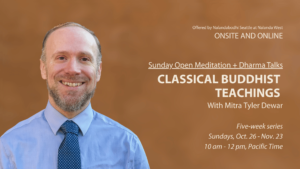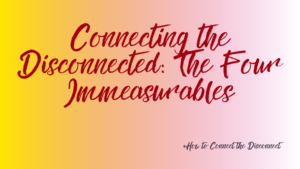Sometimes our mindfulness becomes too focused, too squeezed. Squeezed attention, right? When you focus too much on mindfulness, actually that can sometimes be counterproductive.
When you think too much about not making a mistake, that’s when you make more mistakes, right? Do you remember writing with pen and paper in the old days? Or on the typewriter? Now we can just hit Delete on our keyboard and it’s easy, but back then it was a lot of trouble to correct your handwritten, or typed, mistake.
The more we think, “Oh, I need to be mindful!” the more we focus narrowly and tightly. And when you squeeze your attention and try so hard, sometimes that is counterproductive.
Mindfulness calls for a sense of relaxation. There needs to be some sense of balance in our mindfulness practice.
Some meditation traditions, such as the Tibetan tradition, even say that the one and only thing you really need is relaxation. They say that if you can relax, that’s enough. But can you imagine totally relaxing? Relaxing 100% is almost not possible, right?






